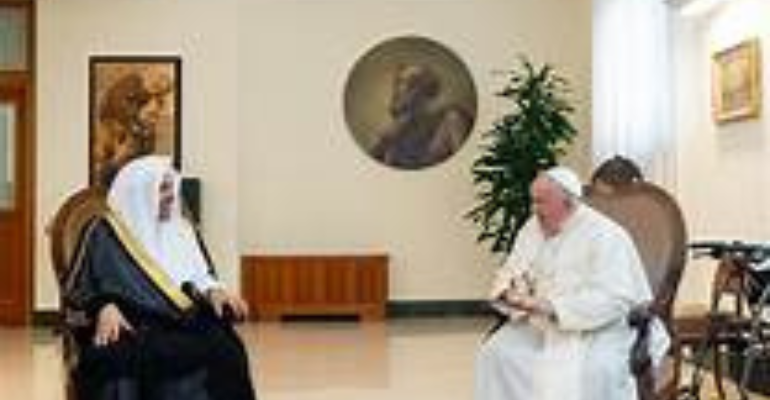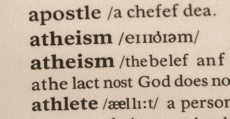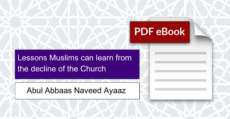Reference: https://www.al-jasem.com/archives/2446
In the name of Allāh, ar-Raḥmān (the most merciful), ar-Raḥīm (the bestower of mercy)
Mohammed al-Issa is an advocate of “new Islām”, attempting to establish principles and foundations of “new Islām” by permitting the exchange of greetings with all types of non-Muslims: Jews, Christians or polytheists – on their religious festivals. He claims that the issue of giving greetings is a matter of Ijtihād (valid differing) due to the absence of textual proof or Ijmā’ (unanimous agreement).
He also brings distortions to support his principles and evidences, which is not surprising for people similar to him who traverse a path of altering and changing.
It is sufficient for the one who desires the truth, that the prohibition of exchanging greetings with non-Muslims on their religious festivals is a matter which is agreed upon by the classical scholars as well as the established Madhhabs which are accepted.
Ibn al-Qayyim said, “As for offering greetings on the rites of disbelief which are exclusive to them [the non-Muslims], this is Ḥarām by consensus, such as offering greetings for a festival or a day of fasting by saying: “May you have a blessed festival” or “congratulations on this festival” etc… Even if [it is argued] that a person who made such a statement has been saved from Kufr (disbelief), his statement remains Haram [at the least]. It is like congratulating a person for prostrating to the crucifix, or even worse than that.
So the scholars are in complete agreement upon the prohibition of offering greetings on the festivals of the non-Muslims, they only differ on the Takfīr (i.e. whether a person leaves the fold of Islām) on account of this. The rulings of Takfīr, for those who hold this view, is based upon what such greetings contain in terms of being pleased and accepting [of their festival], and this is in contradiction to what is obligated upon us in terms of disassociating ourselves from them and forbidding such festivals.
As for his claim that there exists major scholars of the Islamic world who are of the view that offering greetings on such occasions is permitted in Islām, this claim is a falsehood because it is a new “view” which has been innovated, only preceded by a unanimous agreement on its prohibition. It is not hidden from even a beginner student of knowledge, that a “difference of view” does not abrogate an Ijmā’ [1] which has preceded it. In addition to this, Al-Issa is also unable to cite well-known accepted Imāms and scholars who consider greeting non-Muslims on their religious festivals to be permitted, rather he mentioned mere claims.
As for his claim that there is an absence of textual evidence forbidding greetings, if he intends by this claim that there is an absence of proofs according to his “new Islām”, then yes. However, if he intends the original Islām, [2] then the proofs for this are more than can be mentioned, It is sufficient for a person to refer to the statements of the scholars in the chapters of apostasy, in addition to specific books such as “Iqtidā as-Ṣirāt al-Mustaqīm by Ibn Taymiyyah, and “Aḥkām Ahl adh-Dhimmah by Ibn al-Qayyim, as well as other books.
It is sufficient for a Muslim to know that the Prophet ﷺ forbade us from initiating the greetings of salām to the non-Muslims, and he ordered us to oppose them in actions they do not do such as dying grey hair, and in addition to this opposing them in their religious rites such as their festivals, and distinguishing ourselves from them in what is exclusive to their worldly practices and customs such as the manner of dressing.
The Prophet ﷺ connected the dominance of Islām to opposing the non-Muslims by saying,
“The religion will not cease to be apparent as long as people hasten to break the fast, verily the Jews and Christians delay this.”
He also forbade us from residing in their lands, saying:
“I free myself from every Muslim who resides amongst the Mushrikūn (polytheists).”
He also legislated rules for the non-Muslims who reside in Muslim countries that they are distinguished by wearing different clothing and using different transport, and having different appearances from the Muslims. ‘Umar (radiAllāhu ‘anhu) implemented this during his caliphate, the remaining Ṣaḥābah approved of this and the Muslims also implemented this.
As for his claim that the Prophet ﷺ not offering greetings on their religious festivals, is not evidence in of itself that it is forbidden, as the matter is from the Mubāḥ (permitted) matters, and a person not performing a Mubāḥ matter is not evidence it is Ḥarām, then this claim is agitated confusion. The greetings which are forbidden are those which are exchanged on religious festivals, and religious festivals are from the rites of religion – like ‘Eid al-Adḥa and ‘Eid al-Fitr are from the rites of Islām not from the permitted matters, as opposed to offering congratulations and greetings on worldly matters such as a birth or marriage.
As for his claim, that there is a greater benefit in giving greetings and there is no harm in doing so, this is in contradiction to what has been mentioned in the Sharī’ah, and in contradiction to what the religion of Islām is based upon. Islām is built upon dissociation from other religions and considering their followers to be disbelievers, distinguishing from them, opposing them, and Jihād against them. This is the intended meaning of “rejecting Tāghūt” which is half of Tawḥīd, whereas exchanging greetings for their religious festivals entails acceptance and pleasure.
As for his claim, that the prohibition of offering greetings [on such festivals] is from the angle of “closing off avenues [to something which may lead to Ḥarām]” [3] and therefore it is permitted if there is a greater benefit, then this is something not strange from him. The reality of his statement is that disbelieving in and rejecting Tāghūt [4] is merely from the angle of “closing off avenues [to something which may lead to Ḥarām],” and so it is permitted to show acceptance and pleasure to the Tāghūt and believing in them for a greater benefit! If a person was to take this stance, is it not leaving the fold of Islām, and rejecting it?!
Yes, if he had said that imitating non-Muslims in their customs is forbidden from the angle of “closing off avenues [to something which may lead to Ḥarām]”, such as resembling them in their clothing and worldly practices etc… as they may entail agreeing with them inwardly – he may have a valid point, as for showing pleasure regarding their religion by greeting them on their religious festivals, and not dissociating ourselves from their ‘Aqīdah and religious rites, this is Ḥarām in of itself because it relates to the very core principles and creed of Islām and Tawḥīd.
The “greater benefit” which he claims when permitting offering greetings on religious festivals, he intends by greater benefit, “promoting co-existence and harmony” with non-Muslims, the opponents of Islām, and that this is achieved through integration with disbelieving communities – this is the intended meaning, and this is the core al-‘Issa’s call, the focus of his activities and the basis of his “new Islām” at the core of which is: negating the concept of al-Barā’a (dissociation and aversion) of the non-Muslims and belittling the importance of rejecting false Kufr-based deities and ideologies.
In ending, I repeat my advice to all Muslims that they should be wary of Mohammed al-Issa’s call, and those who are similar to him; Muslims should hold on firmly to the original orthodox Islām which is based upon clear proofs and textual evidence, taken from the people of knowledge, piety, and virtue, that which has been recorded and preserved in the great books and collections of Islām. [5] There is nothing “new” in the rulings of Islām, and there is nothing “new” in the creed, belief, core foundations, and principles of Islām.
Footnotes
[TN] The translation of the Shaykh’s words is an edited translation with slight amendments and additions – with his permission.
[1] [TN] The intended meaning of Ijmā’ here is: a unanimous agreement of the scholars in a particular era, upon an issue.
[2] [TN] The Islām which was conveyed and implemented by Prophet Muḥammad ﷺ as per the Qur’ān and Sunnah.
[3] [TN] Al-Issa intends by this that offering Christmas greetings is Islamically permitted in of itself, however, it may be forbidden if leads to something which is Ḥarām, so if this is not the case or if there is a greater benefit attained through offering such greetings, the ruling returns back to being permitted.
[4] The meaning of Tāghūt in this context is false deities and Kufr-based ideologies and festivals.
[5] The great books and compilations of Islām refers to the books of Aqīdah and compilations of Ḥadīth which were authored by the great early scholars of Islām.
العنوان: ردُّ مختصر على أباطيل محمد العيسى عرّاب الإسلام الجديد في تجويز التهنئة بأعياد الكفار الدينية
المرجع: https://www.al-jasem.com/archives/2446
الحمد لله رب العالمين، والصلاة والسلام على النبي الأمين، وعلى آله وصحبه أجمعين، وبعد،
فإن محمد العيسى، عرّاب الإسلام الجديد، ماض في تعزيز مبادئ الدين الجديد بتقرير جواز تهنئة الكفار بجميع أنواعهم – كتابيهم ووثنيهم – بأعيادهم الدينية،زاعمًا أن حكم التهنئة من مسائل الاجتهاد لا من مسائل النص والإجماع، وقد أتى بتحريفات، وليٍّ للقواعد والدلائل، لا تُستغرب من أمثاله، ممن امتطوا مركب التغيير والتحريف.
ويكفي قاصد للحق أن يعلم أن تحريم تهنئة الكفار بأعيادهم الدينية أمرٌ متفق عليه بين العلماء السابقين، كما اتفقت عليه المذاهب المتبوعة.
قال ابن القيم -رحمه الله-: ((وأما التهنئة بشعائر الكفر المختصة به فحرام بالاتفاق، مثل أن يهنئهم بأعيادهم وصومهم، فيقول: عيد مبارك عليك،أو تهْنأ بهذا العيد ونحوه، فهذا إن سلم قائله من الكفر، فهو من المحرمات، وهو بمنزلة أن يهنئه بسجوده للصليب بل ذلك أعظم إثما)) [أحكام أهل الذمة ١/٢٩٣]
فالعلماء متفقون على حرمة التهنئة بأعياد الكفار الدينية، ومختلفون في التكفير بها، والحكم بالتكفير -لمن قال به- مبني على ما تتضمنه التهنئة من الرضا والإقرار، وهو ضد مايجب من البراءة والإنكار.
وادعاؤه وجود من أفتى بجواز التهنئة من كبار علماء العالم الإسلامي باطل، لكونه قولًا محدثًا جديدًا قد سبقه الاجماع والاتفاق، ولايخفى على أدنى طالب علم أن الخلاف اللاحق لا يرفع الإجماع السابق، والعيسى عاجز عن النقل عن الأئمة المتبوعين، والعلماء المرضيين، في تجويز التهنئة، لكنّه قادر على إطلاق الدعاوى.
وأما ادعاؤه عدم وجود نص شرعي يمنع من التهنئة، فإنْ عَنَى إسلامه الجديد فنعم، وأما الإسلام العتيق فالنصوص فيه أكثر من أن تحصر، ويكفي الرجوع إلى كلام العلماء في أبواب الردة، فضلًا عن الكتب المفردة في هذه المسائل، ككتاب “اقتضاء الصراط المستقيم” لابن تيمية، و”أحكام أهل الذمة” لابن القيم وغيرها.
ويكفي أن يعرف المسلم أن النبي ﷺ نهانا عن بداءة الكفار بالسلام، وشرع لنا مخالفتهم فيما ليس من فعلهم كتغيير الشيب، فضلًا عما هو من خصائص دينهم كأعيادهم، أو دنياهم كلباسهم، وربط النبي ﷺ ظهورالإسلام بمخالفة الكفار، فقال: “لايزال الدين ظاهرا ما عجَّل الناس الفطر،فإن اليهود والنصارى يؤخرون”.
ونهانا عن الإقامة في ديارهم، فقال: “أنا برىء من كل مسلم يقيم بين ظهراني المشركين”.
وشرع لنا إلزام من يستوطن من الكفار بلاد الإسلام بأحكام الصغار، بتغيير لباسهم ومراكبهم وهيئاتهم عن المسلمين، كما فعله عمر رضي الله عنه في خلافته، ووافقه الصحابة رضي الله عنهم، وسار عليه المسلمون بعدهم.
وأما زعمه أن ترك النبي ﷺ التهنئة لايدل على المنع لكونها من المباحات، وتركُ المباحات لا يدل على المنع، فهذامن الهذيان، لأن التهنئة المقصودة بالمنع ما كانت على عيد ديني، والأعياد الدينية من الشرائع، كعيدي الأضحى والفطر، فإنهما من شرائع الإسلام لا من مباحاته،بخلاف التهنئة على أمر دنيوي، كالولد، والزواج، ونحو ذلك.
وأما ادعاؤه وجود المصلحة في التهنئة وخلوها عن المفسدة، فهو ضدُّ ما جاءت به الشريعة، وخلاف ما قام عليه دين الإسلام، لأن الإسلام قائم على البراءة من جميع الأديان ، وتكفير أهلها ، والتميّز عنهم ، ومخالفتهم ، ومفارقتهم ، وجهادهم ، وهو معنى الكفر بالطاغوت الذي هو شطر كلمة التوحيد، وركنها الأول ، والتهنئة إقرار ورضا.
وأما زعمه أن تحريم التهنئة إنما هو من باب سد الذرائع، فيباح للمصلحة الراجحة، فأمرٌ لا ينقضي منه العجب، وحقيقة قوله أنَّ الكفر بالطاغوت، إنما شُرع من باب سد الذرائع، وعليه فيباح إظهار الرضا بالطاغوت، والإيمان به للمصلحة الراجحة!! وهل التزام هذا إلا مروق من الإسلام ونبذ له.
نعم،لو قال: مشابهتهم في الهدي الظاهر محرم تحريم الوسائل والذرائع، كمشابهتهم في لباسهم، وشعورهم، ونحو ذلك، لكونه مدعاة لموافقتهم في الباطن، لكان له وجه، وأما إظهار الرضى بدينهم، كتهنئتهم بعيدهم الديني، وترك البراءة من عقيدتهم وشعائرهم الدينية، فلا شك أنه محرم لذاته، لأنه من أصل الإسلام والتوحيد.
وأما المصلحة الراجحة التي ادعاها في تجويز التهنئة، وهي تعزيز التعايش والوئام مع الكفار وخصوم الإسلام، وتحقيق الاندماج مع المجتمعات الكافرة فهو بيت القصيد، وهو لب دعوة العيسى، ومحور نشاطاته، وهو الأصل الي بنى عليه إسلامه الجديد القائم على إهمال عقيدة البراءة من الكفار، والتهوين من أصل الكفر بالطاغوت.
وبناء عل ما سبق، فإني أكرر نصيحتي للمسلمين جميعا، بأن يحذروا من دعوة محمد العيسى وأمثاله، وأن يتمسكوا بالإسلام العتيق المبني على الدلائل والنصوص، المتلقى من أهل العلم والتقى والفضل، المدون في دواوين الإسلام ومجاميعه، فلا جديد في أحكام الإسلام، ولا تجديد في عقيدته وأصوله وقواعده ومبادئه.
والله أعلم ، وصلى الله وسلّم على نبينا محمد وعلى آله وصحبه أجمعين.




